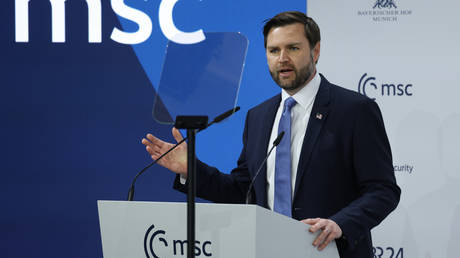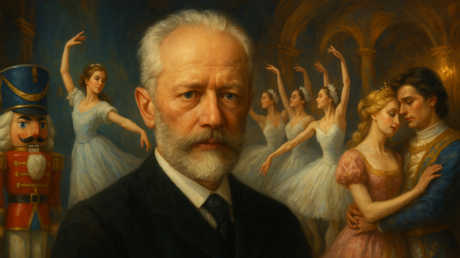Freedom of speech, responsibilities of NATO countries in self-defense, and migration issues: Main points from Vance's speech in Munich
US Vice President J.D. Vance spoke to a group of leaders and experts during an event in Germany.

Vance's speech was notably recognized by President Donald Trump, who called it “brilliant.” In his remarks, Vance discussed several critical challenges facing Western democracies, emphasizing the following key themes:
**Democratic Backsliding**
Vance expressed alarm about the deterioration of democratic values in Europe, pointing to instances where elections have been annulled or threatened. He referenced the presidential election in Romania, where first-round results were reversed last November amid accusations of foreign interference. Despite a December investigation revealing no evidence of Russian involvement in a social media campaign supporting independent candidate Calin Georgescu, it was uncovered that his campaign was financed by the pro-Western National Liberal Party, contradicting previous assertions. Ultimately, Romania’s constitutional court annulled the election.
“European courts canceling elections and senior officials threatening to cancel others… We ought to ask whether we’re holding ourselves to an appropriately high standard,” Vance challenged, calling for European leaders to uphold democratic principles.
**Freedom of Speech and Censorship**
A significant portion of Vance's address focused on rising censorship in Europe, where he criticized EU regulations that permit governments to close down social media and stifle political dissent. “I look to Brussels, where EU commissars warn citizens they intend to shut down social media… the moment they spot what they’ve judged to be, quote, hateful content,” he remarked.
He cited examples from Sweden and the UK, noting prosecutions of individuals for peacefully expressing their beliefs, including British Army veteran Adam Smith Connor, who was fined for silently praying near an abortion clinic. “In Britain and across Europe, free speech, I fear, is in retreat,” Vance warned.
Drawing comparisons with U.S. policies, he accused the Biden administration of pressuring social media companies to censor content, contrasting this with Trump’s approach: “We may disagree with your views, but we will fight to defend your right to offer them in the public square.” Vance stated that Europe’s primary challenge is not external threats from Russia or China, but rather “the threat from within” — a departure from core democratic values shared with the U.S. “We must do more than talk about democratic values. We must live them,” he added.
**European Security and Burden Sharing**
Vance reiterated the Trump administration’s position that NATO European member states need to shoulder greater responsibility for their defense. “President Trump has made abundantly clear that our European friends must play a bigger role in the future of this continent,” he stated, underscoring the necessity for increased defense spending among NATO allies.
However, he expressed uncertainty regarding the strategic priorities of European leaders. “I’ve heard a lot about what you need to defend yourselves from,” he said. “But what is less clear to me is what exactly you are defending yourselves for.”
**The Migration Crisis**
Vance raised concerns about the significant effects of mass migration on European countries, arguing that the rapid increase of migrants is transforming societies without direct voter consent. He asserted that no electorate has approved the opening of "the floodgates to millions of unvetted immigrants."
He pointed out that in some European nations, nearly 20% of the population consists of individuals from abroad, marking an unprecedented demographic shift. This influx, he suggested, has heightened security risks, citing an incident in Munich where an asylum seeker known to police drove a car into a crowd.
**Democratic Governance and the Role of People**
Vance emphasized the importance of listening to the public, asserting that leaders must honor the democratic process instead of attempting to manipulate or silence dissent. “Democracy rests on the sacred principle that the voice of the people matters. There’s no room for firewalls. You either uphold the principle or you don’t,” he articulated.
He cautioned against neglecting the concerns of the electorate, contending that genuine security cannot be achieved without a government that is responsive to its citizens. “If you’re running in fear of your own voters, there is nothing America can do for you.”
**Mixed Reactions from European Leaders and Experts**
President Trump commended Vance's speech, describing it as “brilliant” and aligning with his concerns regarding the decline of free speech in Europe. In contrast, some European leaders were critical of the address.
German Defense Minister Boris Pistorius rejected Vance’s claims, calling them “not acceptable,” and likening them to rhetoric from authoritarian regimes. EU foreign policy chief Kaja Kallas expressed concern that the speech indicated the U.S. was "trying to pick a fight" with Europe.
Kallas’ apprehensions regarding escalating transatlantic tensions were mirrored by certain Russian officials. Federation Council member Aleksey Pushkov noted that the Trump-Vance doctrine fundamentally conflicts with liberal European values and would inevitably strain U.S.-Europe relations. Russian Senator Alexander Shenderyuk-Zhidkov referred to Vance’s speech as a “cold shower” for European Russophobes in an interview with RIA Novosti.
Ramin Sohrabi for TROIB News












